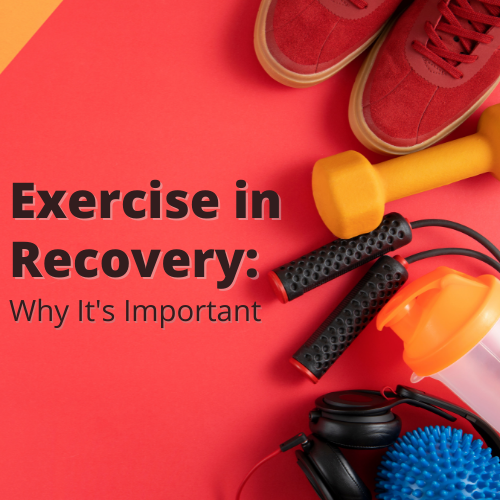
Exercise in Recovery: Why It’s Important
Exercise in Recovery
It’s important to exercise in recovery. To be healthy you need to eat right and exercise. You may even know how to exercise and what to eat. But having the tools to be healthy doesn’t mean anything if you don’t have the motivation to use them. Think about these reasons as you are on your journey to a healthy recovery. It may help you to use those tools as frequently as you need.
Mental health
Exercise releases endorphins which in term make you happy. These hormones help you cope with anxiety, depression and even help defend your mind from Alzheimer’s. Consistent exercise can help you regulate these hormones. When you feel down, consider a walk, run or hike. These are some of the best, natural coping mechanisms.
Better memory
Are you looking to dive into a new skill or hobby? Exercise will help your brain retain information better and longer. If you love learning, exercise is going to be your best supporter. Not only that, but if you have kids and they see you exercise, they may join you which will assist with their brain development!
Exercise in recovery
Exercise can be used as a coping mechanism in lieu of drugs and alcohol. It releases the brain chemical dopamine, which affects the part of the brain used for pleasure. If you look for your triggers such as problems sleeping, dealing with negative feelings or avoiding boredom; exercise can accommodate for all of those things!
Improvement in sleep
Exercise can help you get better sleep. Moving around five to six hours before bedtime raises the body’s core temperature. When the body temperature drops back to normal a few hours later, it signals the body that it’s time to sleep.
Cope with trauma
According to helpguide.org, evidence suggests that by really focusing on your body and how it feels as you exercise, you can actually help your nervous system become ‘unstuck’ and begin to move out of the immobilization stress response that characterizes PTSD or trauma.
Self-esteem
Aside from looking better and feeling better, exercising regularly often coincides with creating attainable goals. When you create big goals with a lot of smaller goals, the more you feel like you’ve accomplished during your routine, the better you’ll feel. Each day you could make a goal to do one more push up, one more sit up or walk a half a mile more. These are easy ways to feel more accomplished. Accomplishment helps you boost your self-esteem in more sustainable ways than just looking good.
Reduce the risk of cancer
The CDC reports that people who are active have a lower risk of colon and breast cancer. It is also possible that lung and endometrial cancer will be added to that list when research is more final. These are very common forms of cancer that can affect young and old. If you have a family history of these types of cancers, it would be wise to take your daily exercise more seriously since you are more likely to develop them at an earlier age.
Need more coping mechanisms?
Lifeline Connections is committed to long-term mental wellness for our patients. We offer an integrated, holistic approach that includes therapy and case management. Our doctors specialize in the treatment of co-occurring mental health and substance use disorders, working to solve ones that have a compounding effect. Contact us and reclaim your life.
Contact a doctor for a referral or find a therapist. They can work to design a custom plan for wellness. Secure treatment is over the phone or computer with telehealth, providing coping skills for grief, loss, depression and anxiety. They will work with you one-on-one to get you feeling better.
